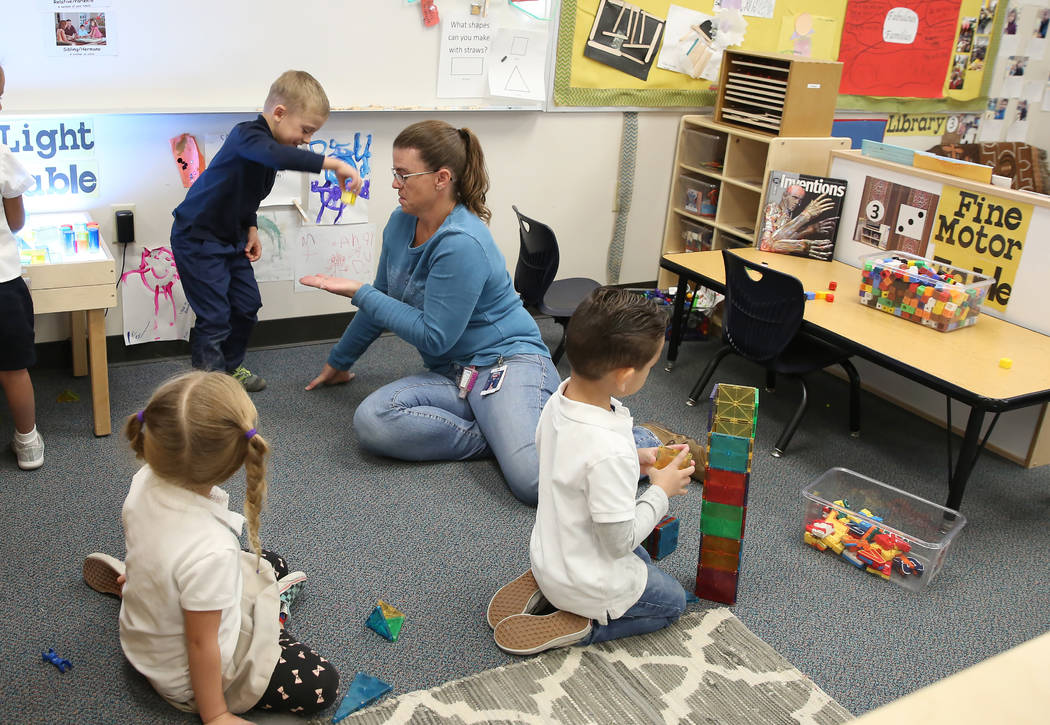EDITORIAL: Pre-K proponents rely on decades old study of child at risk of ‘retarded intellectual functioning’
Nevada education advocates have long included universal pre-kindergarten on their expensive wish list. But the evidence that pre-K will set children on a path toward academic success is so weak that advocates routinely cite a 55-year-old study of 123 Michigan children.
Last week, Review-Journal reporter Amelia Pak-Harvey presented an overview of pre-K in Nevada and found 31 percent of Nevada’s 3- and 4-year-olds participate. That’s not enough for some.
“Early education is a topic of conversation in our community, but it’s usually focused (on) the benefit of the children,” said Elaina Mule, vice president of collective impact and social innovation for the United Way of Southern Nevada.
Those benefits are usually assumed by proponents, but if you push, they’ll often cite the decades-old Michigan review. Ms. Pak-Harvey writes, “One of the most significant studies, which followed a group of Michigan students for three decades, concluded that those who were enrolled in preschool completed higher levels of education and earned more by age 27 than those who did not.”
It sounds convincing. Called the Perry Preschool Project, that study began in 1962. It followed just 123 children with just 58 receiving services, according to a Heritage Foundation review of the study. These weren’t just any children. They were children who had a risk of “retarded intellectual functioning.” The mothers stayed at home and received home visits. Does that sound anything like expanding pre-K for a well-off family in Summerlin?
Nope. That’s why Ross Whitehurst, a scholar with the left-leaning Brookings Institute writes, “The Perry findings demonstrate the likely return on investment of widely deployed state pre-K programs for four-year-olds in the 21st century to about the same degree that the svelte TV spokesperson providing a testimonial for Weight Watchers demonstrates the expected impact of joining a diet plan.”
If only someone, sometime in the 21st-century had done a random assignment study on pre-K. Fortunately for us, someone has. And not just someone, but the federal government itself.
“In late 2012, the Department of Health and Human Services released the Head Start Impact Study, a scientifically rigorous evaluation that tracked 5,000 three-year-old and four-year-old children through the end of third grade,” writes Lindsay Burke, Center for Education Policy Director with the Heritage Foundation. “The study found little to no impact on the parenting practices or the cognitive, social-emotional and health outcomes of participants. Notably, on a few measures, access to Head Start had harmful effects on participating children.”
Nevada spends millions on preschool programs for children in low-income areas, and Clark County offers the option in virtually every elementary school. Universal preschool would demand that taxpayers subsidize the benefit for middle- or upper-class parents, with precious little evidence that such an “investment” would produce results.
The 1960s called. They want their pre-K study back. It’s hard for liberals to forgo cherished talking points, but it’s time to let go of the Perry Preschool Project.

















